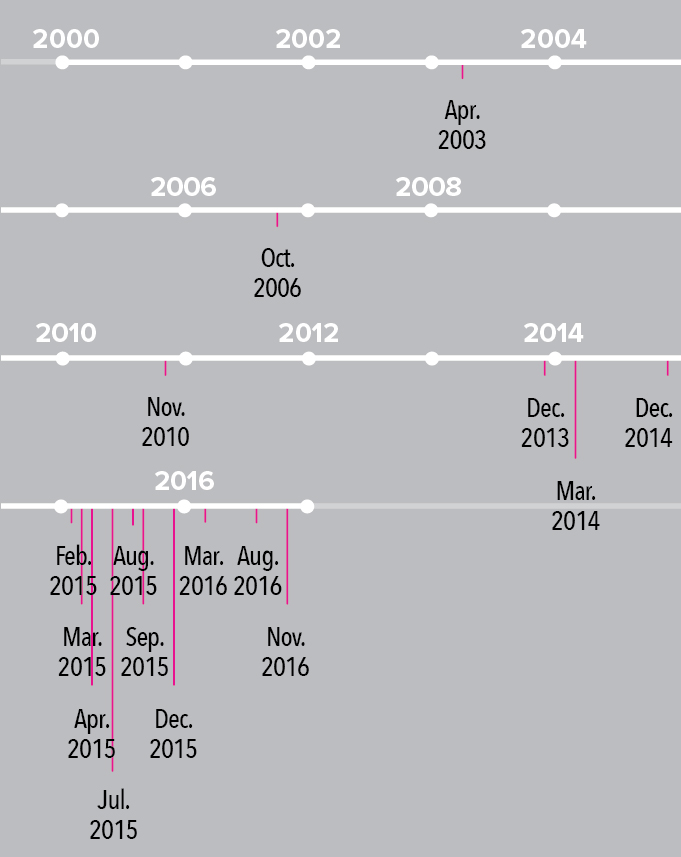This is part of a BuzzFeed News Investigation. Other main stories in the series include:
Locked On The Psych Ward
A Six-Year-Old Gets Locked Up
A Prescription For Violence and related video
Nothing To See Here
TULSA, Oklahoma — By the time police arrived at the psychiatric hospital, one of the adolescent units was out of control. The new manager had been attacked, a handful of its teenage patients had barricaded themselves in a small room, and others were fighting with staff.
The officers called for backup, and three more police cars pulled up to Shadow Mountain Behavioral Health, which primarily treats young people. A “code green” blared over the intercom system, alerting employees across the hospital to the violence.
When a staff member unlocked the room the patients had shut themselves in, police pepper-sprayed the kids inside.
In the tumult, one staff member reported being stabbed in the forehead with a pencil. Outside, a patient scaled the 10-foot fence and, as employees watched in horror, began slicing his wrists with a piece of glass, three employees recently recalled. Running to reach him, another worker stepped in a hole and injured his ankle.
“It was crazy, mass chaos,” said an employee who saw the scene unfold.
Shadow Mountain is owned by America’s largest psychiatric hospital chain, Universal Health Services. A recent BuzzFeed News investigation raised grave questions about the multibillion-dollar company and the extent to which it achieved its high profits (around 27% last year) at the expense of patients’ well-being and employees’ safety. That investigation found that some UHS facilities locked in people who did not need to be hospitalized and held them for as long as their insurance companies could be convinced to pay, meanwhile offering inadequate or even dangerous treatment. The company, which disputed the findings of the investigation, has insisted that it delivers “compassionate, high-quality care.”
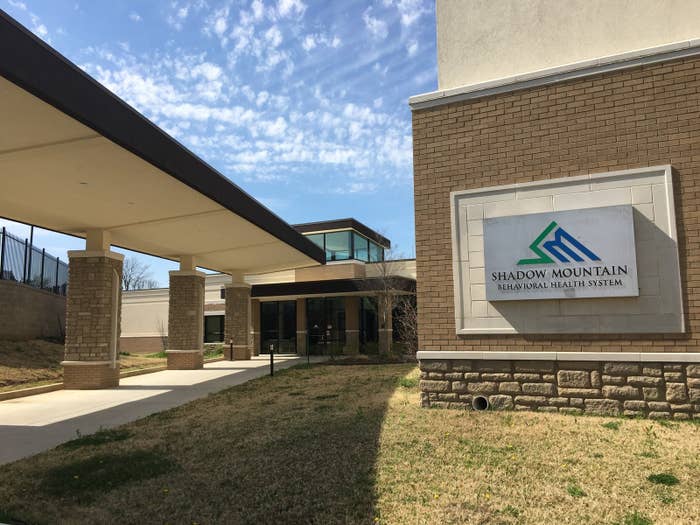
Among the 200 psychiatric hospitals UHS owns, Shadow Mountain, one of the largest, has a special history. It’s where one of the company’s executives, Sharon Worsham, got her start, running the Oklahoma facility for years and grooming its current leader. In an unusual arrangement, the hospital also pays rent for part of the land to a company that is registered to Worsham’s home address and managed by her husband, documents show.
But police records, state inspection reports, and lawsuits, as well as interviews with more than 15 current and former employees, including administrators and psychiatrists, reveal that Shadow Mountain is a profoundly troubled facility where frequent violence endangers patients and staff alike, where children as young as 5 are separated from their parents and held in dangerous situations, and where wards lack adequate staffing and staff lack adequate training.
The state has repeatedly put the facility on probation, citing allegations ranging from a dearth of nurses to medication errors to failure to report incidents of sexual misconduct. One of Shadow Mountain's units, the state found, had barely a third of the staff it needed.
Last week, in response to questions from BuzzFeed News, Oklahoma’s Department of Human Services opened an investigation into Shadow Mountain and its director, Mike Kistler, regarding possible abuse and neglect.
Internal surveillance videos obtained by BuzzFeed News show Kistler repeatedly taking the unusual step of physically restraining children himself, putting them into holds that a nationally recognized expert described as unwarranted and dangerous. One of the videos shows that he looked on, chatting with an employee, as an agitated child repeatedly banged his head against a wall.
For its head nurse, Shadow Mountain hired a person who had been disciplined three times by the state medical board, in one case for shooting up drugs while on duty in an intensive care unit. Many of Shadow Mountain’s other nurses, according to employees, are in a state program for nurses “whose competency may be impaired due to substance abuse and/or chemical dependency.”
Over the last three years, police logs show, officers have been called to the facility at least 340 times — on average about twice a week — for reasons including wrangling runaways, breaking up fights, and investigating rapes. The Oklahoma state agency that monitors child abuse determined there have been 30 incidents of neglect or abuse at Shadow Mountain in the last three years.
Most of the staff members interviewed by BuzzFeed News asked for anonymity for fear of reprisal.
Employees have told state regulators that Shadow Mountain was short-staffed, and some of them said that low staffing levels helped lead to the riot and contributed to a general climate of violence. “The way a good day was judged was whether I got punched,” said one who worked there for two years.
In a lengthy response to BuzzFeed News’ inquiries, UHS said the company “is proud of the care it provides patients at Shadow Mountain Behavioral Health,” which has been named a "Top Performer in Key Quality Measures" by The Joint Commission, a nonprofit that accredits hospitals across the country.
“The facility has been recognized for the care of patients with the most complex psychiatric issues with positive clinical outcomes,” it continued. “You focus on the small number of unfortunate events or incidents to create a false narrative about the quality of care and staff at Shadow Mountain, while ignoring and disregarding the thousands of patients whose lives have been positively impacted and improved by the care and treatment they received at Shadow Mountain.”
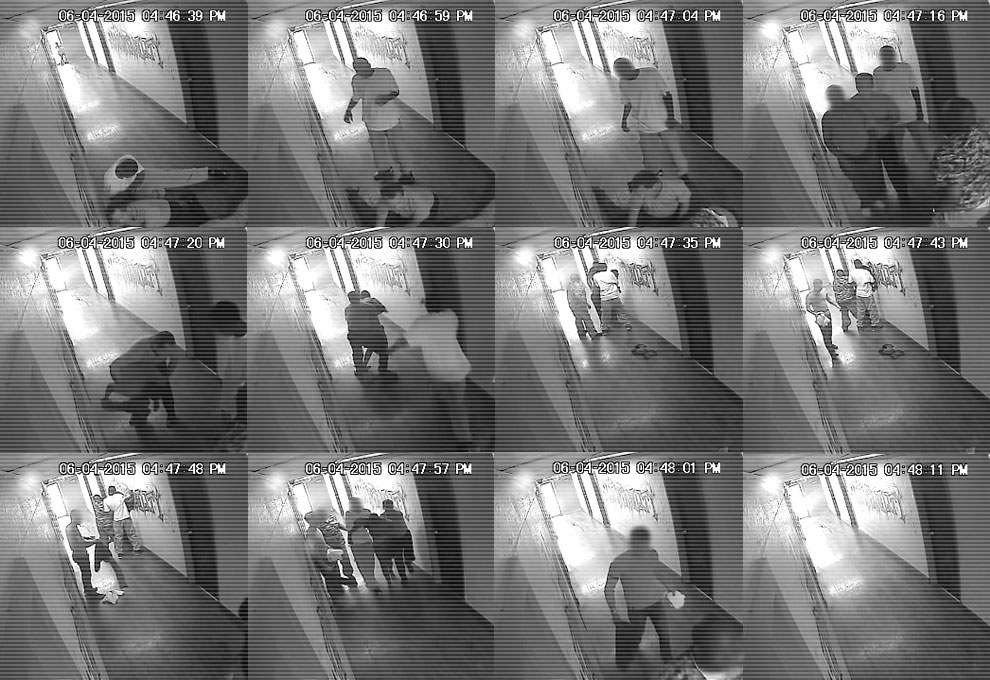
Kistler, a stout, sandy-haired executive, joined the hospital more than a decade ago. In 2011 he became head of the sprawling four-campus, 250-bed facility, which treats some adults and a range of younger patients, including girls who have tried to kill or harm themselves, boys who have committed sex offenses, and adolescents who are developmentally delayed.
In the last five years, more than $115 million of public funds has flowed to Shadow Mountain’s facilities for inpatient care through Oklahoma’s Medicaid program. Its acute units take patients in crisis who pose an immediate danger to themselves or others. Kids who are in its residential units are generally more stable and have less supervision. They attend school part of the day and may stay for months at a time.
Running a hospital is usually a managerial job. But employee interviews, internal reports, and hospital surveillance videos of five separate incidents show that Kistler, a former high school wrestler who has a black belt in judo but no medical or nursing degree, took a distinctly hands-on approach when it came to restraining patients.
Clear rules govern how mental health practitioners should approach such interactions: Physical restraint or detention in a seclusion room should be used only to prevent a patient from seriously harming themselves or others. Oklahoma state regulations also require that these measures be used only after all other options have been exhausted. And when a patient requires restraint, mental health workers are often trained to work together in groups, in order to prevent flailing or kicking that might cause injuries.
In two of the videos, a group of hospital technicians have already succeeded in controlling a patient. Kistler waves them aside so that he can hold and restrain the patient himself.
The boy begins banging his head against the wall. Kistler, standing in the frame of the doorway, does nothing.
In one instance, a blonde boy who looks about 9 years old has been pinned down by several staff members. Kistler, the video shows, arrives on the scene, grabs the boy by the arms, and pulls him out of the hold of the staff members. He then carries the boy to a seclusion room and pushes him onto the floor.
Lying on the floor of one of Shadow Mountain’s seclusion rooms, the boy begins pounding his fists against his head — precisely the kind of injurious behavior that restraint and seclusion are designed to prevent. But Kistler, leaning against the partially open doorway of the seclusion room and chatting with a nearby employee, does nothing.
Watching the videotape of the incident at BuzzFeed News’ request, Wanda Mohr, a nationally recognized expert in restraints, said Kistler or his staff should have intervened to prevent the boy from hurting himself. Her mouth clenched as she watched the boy continue to strike his fists against his head.
“You’ve got two staff members,” including “one staff member who’s simply watching the child self-mutilate,” said Mohr, referring to Kistler. “This is extremely disturbing video.”
When the boy gets up and tries to run out of the room, Kistler shoves him back. He pulls the boy down to the ground and onto his lap, pins his arms back, and wraps one of his legs around the child’s thighs. After about 30 seconds, Kistler releases the boy, leaving him on the floor of the empty room, and returns to his conversation. The boy soon begins banging his head against the wall. Kistler, standing in the frame of the doorway, does nothing.
Viewing the footage, Mohr, a former psychiatric nurse and now retired professor of nursing, expressed disbelief. “That’s what we’re there for in hospitals, is to prevent these extremely traumatized individuals, these extremely sick individuals, from harming themselves,” she said.
Kistler, who called the videos “highly misleading,” told BuzzFeed News, “My personal engagement in these rare situations was appropriate, reasonable and proportional. At no time did any patients I interacted with sustain bodily harm or injuries.” He rejected the possibility that an outside expert “could offer an opinion of a situation for which they were not present, nor privy to the patient’s condition, treatment plan and events occurring before or after the video.”
Citing privacy laws, UHS said it was unable to comment in detail on the videos, but echoed Kistler’s warning that the situations were more complex than any video could capture. In the case of the boy whom Kistler put in the seclusion room, UHS said, “The viewer with no background or knowledge would not understand or be aware of the underlying pathology and history of the patient which includes escalation with any physical contact inciting further violence for a sustained period of time.”
Calling the patient’s actions “disheartening,” it said that “observation to ensure that no actual harm occurs is the best course of conduct as opposed to intervention which has previously escalated and continued the behavior.” Had the patient been hurting himself, it said, “our staff would have immediately intervened.”
In another one of the videos, a 9-year-old boy paces in the corner of a room near the nurse’s station, upset that he isn’t allowed to leave. “I wanted a walk off the unit,” the boy later told staff, according to an internal report.
After the boy sits down against the wall, Kistler sits down right next to him. The two swat and elbow each other a bit before Kistler wraps his arms around the boy’s shoulders to restrain him.
According to Mohr, that was not appropriate. The boy is “beginning to get combative, but he’s been provoked,” she said. “He was not beating up anybody, he was not making any threatening gestures, he was not mutilating himself, and yet someone” — Kistler — “laid their hands on him.” She added, “That is definitely not an okay situation.”
As the boy struggles to break free, trying to slide his body down out of the hold, Kistler keeps pulling him back. He grabs the boy by his hair and appears to press the patient’s face into his own arm, the video shows.
“This is a terribly egregious situation,” Mohr said. “He seems to be compressing his neck and that’s potentially dangerous.”
An internal report about the incident says the boy needed to be restrained in part because he “ripped the border off the wall and caused property damage.” The report also states that the boy was hitting and kicking staff and that he was a danger to others.
Mohr said she didn’t see any misbehavior that approached those levels and that the boy could safely have been left to calm down on his own. “That was so totally unnecessarily,” she said. “That child was not out of control.”
Last August, two employees from Oklahoma’s Department of Human Services viewed the tapes. No investigation was assigned. That changed on April 4, four days after BuzzFeed News inquired about the outcome of that meeting. A spokeswoman confirmed that the department has now opened an investigation. The inquiry focuses on both Shadow Mountain and Kistler, according to a source with knowledge of the investigation.
UHS did not respond to BuzzFeed News' questions about the investigation.
In the late 1990s, the problem of children dying while in restraints gained national attention, and new federal and state regulations were introduced over the following years. Some of these regulations limited facedown holds, which can restrict breathing. Reports showed that they could be fatal.
Today, the major companies that train psychiatric workers stress that staff should avoid putting hands on a patient whenever possible, emphasizing verbal de-escalation and prevention instead. “There’s a developing culture in psychiatric care that seclusion and restraint is not best practice,” said Deborah Gross, a nursing professor at Johns Hopkins University. “It may even be a treatment failure.”
UHS told BuzzFeed News that by its own measure, Shadow Mountain’s use of “restraint and seclusion utilization are dramatically under the national average—which is our goal.”
It said, “When a patient is in restraint or seclusion, they are subject to constant monitoring to ensure their safety.” The company’s statement continued, “None of the patients depicted in the video suffered any injuries or bodily harm. External reporting of restraint and seclusion is only required in the case of a significant injury.”
Two fellow hospital administrators who worked closely with Kistler spoke highly of him. Kistler is “probably one of the most ethical people I’ve ever worked with,” said Shadow Mountain’s former chief financial officer John Kirtley Penrod.
In 2014, UHS awarded Kistler a Chairman’s Council award, which it presents to individuals “who inspire and build exceptional teams that are dedicated to advancing their facilities through strong financial performance and achieving the highest patient satisfaction and outcomes.”
But other employees found Kistler’s behavior with patients and staff members to be inappropriate. Three employees told BuzzFeed News they had called UHS’s corporate compliance line to report Kistler, for reasons that include putting patients in improper restraints.
“If we did some of the things that Mike did, we would lose our jobs,” said a former employee who worked at Shadow Mountain for two years.
In accordance with company policy, these complaints are assigned for investigation to Worsham, the UHS executive who previously ran Shadow Mountain, as well as the corporate human resources department, UHS said.
In a letter to BuzzFeed News, Worsham said, “Notwithstanding any professional mentorship or personal relationship I may have with those that work for me, I will always put personal feelings or history aside to ensure that all team members are meeting the professional and ethical expectations required of them as healthcare leaders.”
UHS facilities in at least 10 states have been cited by state or federal regulators in the last three years for not following proper procedures when placing patients in restraints. In 2015, a nurse at a residential facility in Texas was charged with injury to a child after he pushed an 8-year-old boy down to the ground, according to a report of surveillance footage. (The felony charges were later dismissed, but last August the board of nursing filed formal charges against the nurse's license.) The patient sustained injuries consistent with being strangled. The nurse declined to comment on the incident.
Last November, a 19-year-old resident died in one of UHS’s Georgia facilities. The teenager was struggling while a staff member was “on the patient’s back with the patient facing the ground,” inspectors found after a review of surveillance tape and records. Just three minutes after being placed in that position, the teenager was unconscious. Staff attempted CPR but couldn’t revive him.
At Shadow Mountain, another of the surveillance videos shows staff pinning a large adolescent facedown for at least seven minutes.
While the struggle takes place slightly off camera, at one point a female employee can be seen resting her forearm and elbow on the back of the boy’s legs. A male employee later kneels on the resident’s calves. Kistler is higher up on the boy’s body, holding down what appears to be his lower back.
Watching the video, Mohr said, “That’s how people die.”
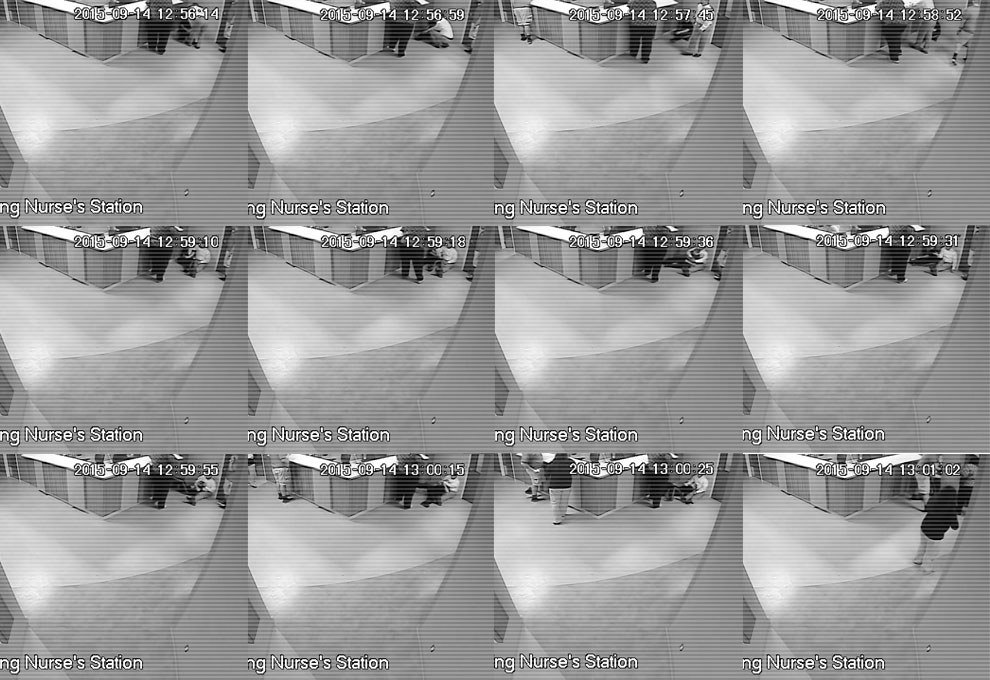
Before Kistler took the helm of Shadow Mountain in 2011, it was run by Sharon Worsham, a licensed nurse who is now a vice president in the UHS division that runs the corporation’s psychiatric facilities. Worsham had been Shadow Mountain’s top administrator since 2000, back when it was still owned by the Brown Schools, a now-defunct network of treatment programs and education facilities for troubled kids.
When Kistler joined Shadow Mountain from another Brown Schools facility in 2002, Worsham took the former Army sergeant under her wing, became friendly with his wife, and even babysat his young son occasionally.
Psychiatric Solutions, or PSI, purchased Shadow Mountain along with five other Brown Schools locations in 2003. Within a few years of the acquisition, PSI had more psychiatric beds than any other chain in the country. As the company grew, so did Shadow Mountain. It opened a new unit of the hospital on a remote swath of land near the Arkansas river, close to the eastern border of Oklahoma. But PSI didn’t own the property. A company called Refuge Ranch did, having paid $850,000 for it.
County assessment records locate that company at a home owned by Sharon Worsham, who was still the head of the hospital at the time of the purchase, and her husband, David. David is listed as the manager of the company, and he signed three mortgages to finance the purchase.
Two years after the company based in the Worshams’ home purchased the property, Shadow Mountain opened a wilderness program for adolescent boys on that parcel of land. According to Penrod, the former CFO who retired last year, Shadow Mountain paid about $15,000 in rent each month for the property — or $180,000 a year. By 2014, all three of the underlying mortgages that David Worsham signed had been paid off.
After the purchase, Sharon Worsham was named a divisional director of PSI. She kept that position when UHS bought the company in late 2010. She now oversees a number of UHS hospitals, including Shadow Mountain, and still owns a home nearby.
UHS told BuzzFeed News that it was aware of the land deal. Worsham said that the arrangement “has never impacted my professional responsibilities relative to Shadow Mountain nor interfered with the facility’s mission to provide the best possible care and treatment to our patients.”
But medical ethics experts said the arrangement is highly unusual.
Richard Elliott, a psychiatrist and medical ethics professor at Mercer University in Georgia, declined to say whether the land deal crossed a line, but noted, “It just muddies the water unnecessarily if you bring in family members.”
He added, “Ideally you would like to see that there was one interest of a CEO and that’s patient care.”
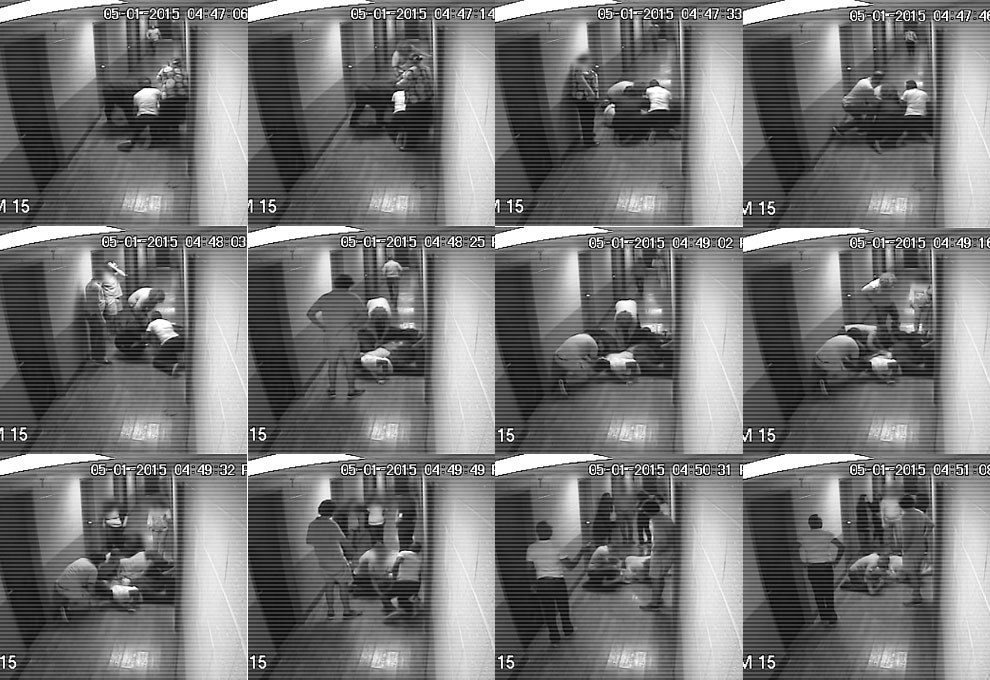
When Mari Samuelson started as Shadow Mountain’s marketing director in 2014, she said she got only one directive from Kistler: “Just fill the beds.” Five other current and former clinical staff members said there was constant emphasis on getting patients admitted, without regard to almost any other factors.
"It was always about what were we going to do to fill the beds," said another employee who worked at the hospital for more than three years.
Their accounts echoed the findings of BuzzFeed News’ December investigation, in which current and former workers at 10 UHS hospitals said they were under pressure to fill beds by almost any means, which sometimes meant getting people in for what they thought was just a free mental health evaluation or exaggerating their words to make them seem suicidal, then locking the doors behind them. In response, UHS said it “absolutely rejects” any claim that it held patients solely for financial gain. “Every patient care decision is made with the goal of furthering the best interests of our patients,” the company said.
But at Shadow Mountain, four clinicians said, the demand to admit almost everyone sometimes meant admitting kids who were violent or better suited to a juvenile detention facility than a psychiatric facility.
Little attention was paid to how a potential new patient might fit in with the unit or respond to treatment, said a former admissions supervisor, because hospital administrators wanted almost everyone in. On many mornings, Kistler used to flip through assessments and demand that some who weren't admitted be called back for another evaluation, said two former employees.
But, the former supervisor said, the wrong mix could disrupt the unit: Older, more violent kids could dominate the staff’s attention or incite younger, more impressionable patients.
One unit at Shadow Mountain was nicknamed “the trash can unit” because it was where they “threw whoever they wanted,” a former staff member testified in a lawsuit.
One unit at Shadow Mountain was nicknamed “the trash can unit” because it was where they “threw whoever they wanted,” a former staff member testified in a lawsuit.
“It was spun as ‘we’re saving the world.’ But the reality is we’re housing kids in here in a very unhealthy, dangerous situation,” said Samuelson, the former marketing director, who is also a licensed clinical social worker.
Kistler requested one former admissions director to track the percentage of patients each doctor was admitting, the admissions director recalled. She said that if she reported a doctor’s numbers were down, then Kistler “would really push the doctors” and “all of a sudden their numbers would go up.”
Two psychiatrists said that if the number of patients in the hospital dropped too low, then there was special scrutiny around discharging patients before their insurance ran out.
“We dispute any claims that we are intentionally admitting patients who do not meet admission criteria at Shadow Mountain,” UHS said in response. “Shadow Mountain has written admission criteria and all patients are assessed by a psychiatrist to determine if they meet that criteria.” Saying it had disproven these allegations in the past, the company added, “Any contention that there was ‘increased scrutiny’ on the discharge of patients when census was down is inaccurate.”
But in the previous BuzzFeed News investigation, employees at other UHS hospitals reported hearing similar instructions.
Former heads of three hospitals in Worsham’s division said they were advised not to “leave days on the table,” which meant not releasing patients before they had run through all their approved insurance coverage. It was a strategy to maximize revenues, they said. Worsham denied “any allegations that clinical decisions have ever been made for purely financial purposes.”
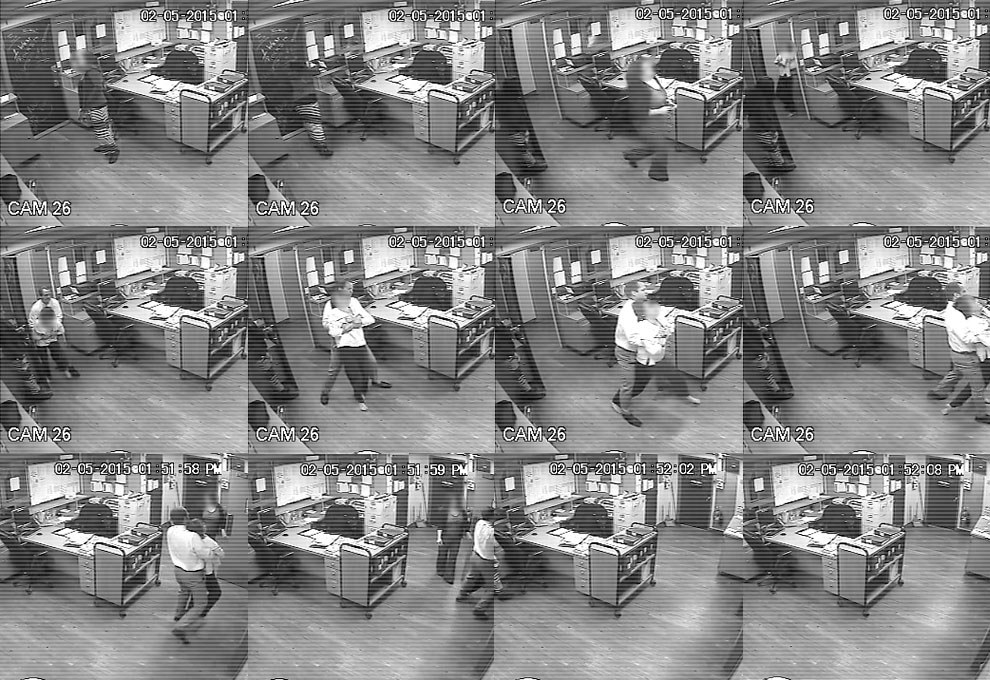
One week after the February 2015 riot, state authorities arrived at Shadow Mountain and found such flagrant staffing violations that they soon told the facility that they intended to terminate its Medicaid contract.
Oklahoma requires one staff member for every eight patients during nighttime sleeping hours, but inspectors found that one of Shadow Mountain’s residential units had just one employee for every 22 patients. Another unit had one for every 15. Only three nurses were on duty across seven different units.
When regulators spoke to employees, 42 out of the 56 interviewed said the facility did not have enough direct care workers. There was “no experienced or core staff,” some employees told state inspectors, and requests to increase staffing were discouraged by hospital administrators. Staff complained that when a code green alarm was sounded, indicating violence, “sometimes no one responds at all.”
Some staff told inspectors that they were threatened with termination for using the word “riot” to describe the incident. In its statement to BuzzFeed News, UHS characterized it as a “multiple patients’ incident” and said “the entire matter began and ended in less than 20 minutes.” It continued, “We are proud of the way our staff responded,” with one exception: “We terminated a manager who in our view precipitated the entire situation.”
State regulators found that injuries patients and staff had suffered in the riot had not been reported to authorities, a violation of state rules.
When a code green alarm was sounded, indicating violence, staff members said “sometimes no one responds at all.”
Shadow Mountain responded to the termination notice saying that it would ensure there was proper nursing staff on duty and that it had staffed the facility to the correct ratios. It also told the state that it had reported the patient who cut himself, was unaware of another, and didn’t report a third because it was “not considered serious.” The Oklahoma Health Care Authority decided not to terminate the contract, and instead put Shadow Mountain on a “Corrective Action Plan” in August to fix the violations.
But in December 2015, the state sent another notice of intent to terminate Shadow Mountain’s Medicaid contract. Staffing insufficiencies at the facility are a “common and recurrent issue,” the agency wrote, pointing to Shadow Mountain’s practice of double-counting workers across different units.
“There continues to be issues involving the sharing and cross-counting of staff from different units within the same facility,” said the letter. In bold font, it warned: “There must be separate and distinct professional staff for both entities at all times.”
“As at other UHS facilities,” the company told BuzzFeed News, “Shadow Mountain takes all feedback received from regulators seriously and constantly explores how we can improve the services we deliver. There are also times when we disagree with the findings of regulators and we will engage in dialogue to resolve matters including the possibility of a formal appeal. We are proud of our record of working with the State of Oklahoma to address any identified concerns.”
Jolene Ring, a former chief operating officer at Shadow Mountain, dismissed the allegations in an interview with BuzzFeed News as a “contract dispute” and said that if there had been any serious issues, the state would have been legally and ethically required to pull residents out of the hospital.
But other employees echoed many of the state’s findings. There's a "constant issue of not having enough people in the building," said a current employee. "There's not really enough people to work and there’s very high turnover."
UHS facilities in at least nine other states have been cited for staffing problems in the last three years, according to a review of state and federal inspection reports.
Do you know of problems at a psychiatric hospital? Email psych@buzzfeed.com
A Texas UHS facility failed to ensure that it had enough nurses and mental health workers. Inspectors cited a Louisiana UHS facility for not staffing appropriately, including during one shift when a female patient alleged that a male patient raped her in her room. And at a South Carolina UHS residential treatment center, state inspectors found insufficient staffing and evidence of frequent violence: Among the incidents, a patient suffered 14 attacks or injuries by other patients, including kicking, biting, and punching; another patient was “out of control” on at least five occasions; and a third patient got attacked or injured on at least eight occasions.
At Shadow Mountain, more than half a dozen current and former employees said that staff kept quitting because the facility was so unsafe.
“The kids are in control — they say what happens and what doesn’t happen,” said a nurse at the facility, who added that “code greens happened almost every day.” Because “things weren’t safe, and there was such poor support and poor training,” one of the two former psychiatrists said, there was “more turnover and open spots.”
In defending its staffing to the state, Shadow Mountain told regulators it had hired more people, installed a staffing software program, and “continuously advertises for mental health technician positions” and registered nurses “so it always has a pool of applicants to hire from and keep core staff in place.”
But employees said it was common for staff to bail on their shifts or not show up. Sometimes as many as 80 shifts could go unfilled over the course of a weekend, said Justin Moss, a former tech and staffing coordinator. Several former staff members told BuzzFeed News they eventually walked off the job without notice.
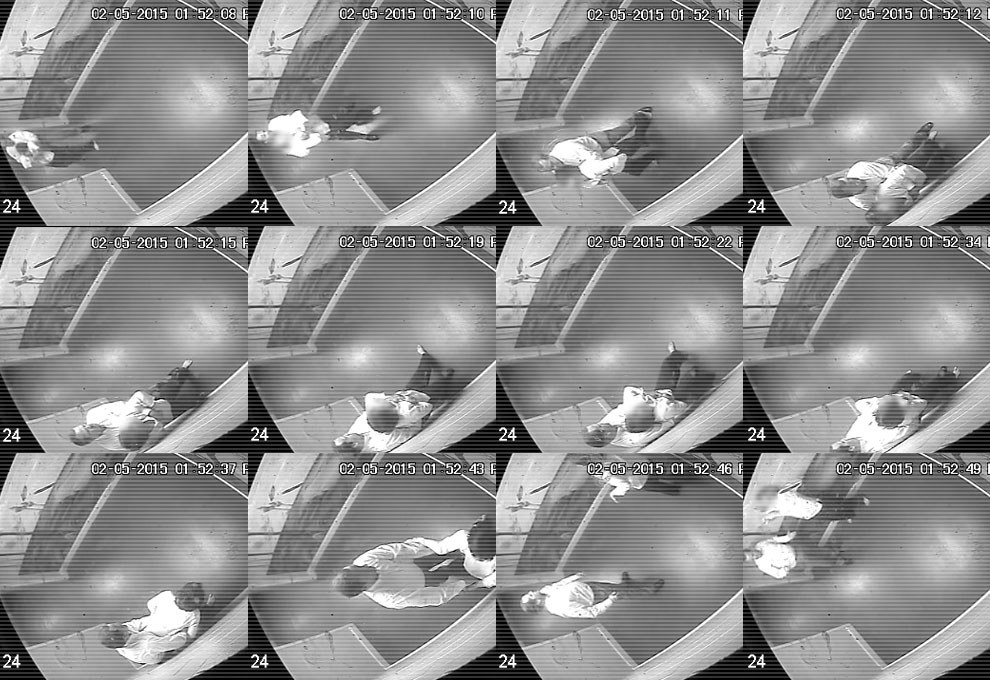
Staffing problems went beyond just the number of employees, according to interviews and public records.
Shadow Mountain’s head nurse had racked up three disciplinary actions — including two for drug abuse — on her license before she was hired at the facility. In July 2011, she had been fired from a job after she was found unresponsive in the bathroom of the intensive care unit, having injected an anesthetic into her wrist with a butterfly needle. She told BuzzFeed News that she deeply regrets those incidents and has been in recovery for almost six years.
A previous nursing director at Shadow Mountain also had been disciplined by the nursing board after requesting pain medication for a patient who did not, it later emerged, come to the facility that day, according to nursing board records. Initially, the nurse said he washed the medicine down the drain, then changed his story and said he threw it in the trash. He did not return repeated phone calls for comment or respond to a letter sent to his home address.
Shadow Mountain's head nurse was fired from a previous job after she injected herself with anesthetic and was found unresponsive in the bathroom of the intensive care unit.
One problem was pay, current and former staff members said. While Shadow Mountain offers signing bonuses for nurses, the starting wages were too low to attract qualified professionals, said current and former employees. In 2015, registered nurses were paid $21.50 an hour and licensed professional nurses were paid $14.50 an hour, according to an internal staffing grid seen by BuzzFeed News.
UHS told BuzzFeed News, “Our pay scale is based on local market analysis with appropriate adjustments made periodically as required to ensure market compatibility in order to ensure recruitment.” The current wages have been raised to $24 an hour for registered nurses and $18 an hour for licensed professional nurses, which are more in line with rates in the area.
The work was also difficult.
“The kids that are there are very troubled. It’s hard to keep law and order there,” said Barbara Leseberg, a former nursing supervisor at Shadow Mountain.
Many of the nurses Shadow Mountain ends up hiring, said three current and former employees, are part of Oklahoma’s peer assistance program, a voluntary, confidential program that helps nurses who are recovering from substance abuse get back to work, with restrictions on the services they can perform.
Leseberg estimated that about 80% of the nurses she supervised were in the program.
UHS said the actual number was small, but the company declined to specify, in order to avoid causing “pain and stigma to those participating” in the program, which is anonymous.
Nurses are licensed by the state, but the backbone of many psychiatric hospitals is mental health technicians, who generally have no specialized degree yet spend more time interacting with patients than doctors or nurses do. At Shadow Mountain, many techs, as they are called, were hired with little or no experience working with mentally ill people.
According to advertisements the facility posted, its major requirement was that “all applicants must be at least 21 years old and have a HS diploma or a GED.” Experience working with children or adolescents in any capacity was “a plus.” Health care experience was not mentioned, let alone required. Shadow Mountain trains new staff members weekly, according to one of the letters it sent the state.
“You’ve got someone getting paid nine or ten dollars an hour. All of a sudden the patient challenges them and wants to fight,” said Moss, the former staffing coordinator. “Those staff members don’t last that long in the line of work,” he said.
Indeed, the mix of understaffing and inexperience is dangerous, said Gross, the nursing professor at Johns Hopkins.
“What you really want is people who understand behavior, pick up cues, and intervene early,” she said. “If you don’t have enough staff to understand what those cues mean, then things escalate quickly.”
Around 2011, Shadow Mountain hired a tech named Dale Bryant Allen. He didn’t have any recent experience working in mental health but had worked as a school bus driver, according to court records. In December 2012, the tech grabbed a 9-year-old boy by the neck, pushed him up against a wall, and slammed him down to the ground. The incident, court records state, was recorded on the hospital’s video cameras. About a week earlier, according to a description of another surveillance video, Allen had entered a hallway holding a different 9-year-old boy by his jacket. The boy kicked out his leg, according to a report, and then Allen kicked the boy in his upper leg. A lawsuit later alleged that the abuse had gone on for months and that Shadow Mountain had tried to cover it up.
Asked if she was aware that her son had been beaten by a staff member, Bouchard replied, “Are you kidding me? No, I’m not aware. What are you talking about?”
When that boy’s mother, Nikki Bouchard, took him home from Shadow Mountain to celebrate Christmas, she noticed a large bruise on the side of his stomach. He didn’t say much about how he got it, she recalled. He had told her before that staff sometimes shoved him against walls or pushed him around, but when Bouchard had inquired at the hospital, she had been told it was just her son’s ruse to try to come home early.
Then, in January, Bouchard got a call from Oklahoma’s Department of Human Services, the agency that monitors child welfare. Was she aware that her son had been beaten by a staff member? she was asked.
“Are you kidding me? No, I’m not aware. What are you talking about?” Bouchard recalled telling the investigator.
Allen wrote to state investigators that the boy “got aggravated at me and kicked me. Without thinking I kicked him back. I was not trying to hurt the pt” — short for patient — “it was just a reaction. I know that I was wrong and I regret doing it.”
As a result of this incident, Allen was convicted of two felony counts of child abuse in late 2013. He was sentenced to complete 80 hours of community service, attend an anger management program, and pay a fine. (Court records show he still owes more than $2,000.) Allen did not respond to letters sent to his home asking for comment.
Bouchard sued Shadow Mountain and UHS in 2014 and received $41,000 in a settlement. The parents of the other boy Allen abused sued and settled with Shadow Mountain as well, according to their lawyer.
Two other sets of parents also filed suit against Shadow Mountain in 2015. According to the complaints, a male employee broke the arm of an adolescent girl while escorting her within the hospital, and a boy’s legs and buttocks were seriously injured, including with cigarette burns. The lawsuits alleged gross negligence in care and staffing. The former case was settled; the latter case is ongoing.
UHS described these incidents as outliers: “The mere fact that a handful of staff members over our long history have failed to meet our expectations for patient care does not equate to the false premise that our staff are not caring, dedicated professionals committed to their patients and the goal of providing the best possible care and treatment.”
Violence at Shadow Mountain was a regular occurrence, interviews and records show. Weeks after the February riot, four teenagers escaped from the facility and robbed a waitress who was standing outside of her car in front of a nearby diner, said a spokesperson for the Tulsa Police Department. The teenagers demanded her wallet and forced her to drive them away in her car, according to a local news report. Three of the runaways were later arrested on charges of kidnapping and robbery.
The mother of the victim told BuzzFeed News that her daughter still suffers from post-traumatic stress disorder after the attack.
In April 2015, seven cop cars arrived to break up more fighting at Shadow Mountain, while a helicopter whirred overhead. This time, 20 of the residents were fighting with staff and hitting them with brooms. A caller said there was “rioting” and they “need police as soon as possible.”
“There were literally bodies flying around” and “blood on the walls,” one staff member said.
Two former employees told BuzzFeed News that they had been discouraged from calling police, which prolonged the violence. One tech, Kristee Kimball, recalled being told by a nurse that she would be fired for calling law enforcement.
“I went ahead and called the cops anyway,” she recalled. “There were literally bodies flying around” and “blood on the walls,” she said.
Kimball quit the next day after three months at the facility. “The day of the riot was one of the scariest things I’ve been a part of because you just didn’t know how much more out of control it was going to get,” she said.
One patient, a minor, was later arrested for aggravated assault and battery, according to a spokesperson for the Tulsa Police Department, and three staff members went to the hospital.
These incidents make up only a fraction of the 340 calls the police department received about the facility in the last three years, records show.
UHS described that statistic as misleading. “Our facility’s interaction with police is often to meet our legal notification obligations for which the police are required to investigate (most times resulting in unsubstantiated matters), to deal with outstanding warrants, to follow-up on an investigation that is unrelated to our facility, or for other reasons,” the company said.
In addition to three calls about fights on the property, however, those 340 calls also included more than 50 calls about runaways, 16 calls about assault (including one with a deadly weapon), and seven calls about rape.
In March 2016, the Oklahoma Health Care Authority sent Shadow Mountain another letter letter saying that the facility would remain on close watch and would be placed on a “Corrective Action Plan,” but that the agency had decided a second time not to terminate its contract.
In November 2016, however, the state took action. Oklahoma’s health care agency terminated the Medicaid contract for one of Shadow Mountain’s campuses because of continued staffing violations. It did not accept Kistler’s explanation that the state had received incorrect staffing information based on “computer programming issues.”
The agency determined instead that “it was clear that Shadow Mountain was non-compliant with the minimum staffing requirements including multiple instances where the proper ratio of staff to patients was not met and, most alarming, instances where acute units were left with no RN” — registered nurse — “coverage for all or part of a shift.”
The following month, on December 21, Shadow Mountain was approved for a new Medicaid contract. ●
CORRECTION
This article was amended to reflect the fact that a 2015 lawsuit brought by a family whose child was seriously injured while at Shadow Mountain is ongoing. The article previously said the case had been settled.
View this video on YouTube
Do you know of problems at a psychiatric hospital? Email psych@buzzfeed.com
Outside Your Bubble is a BuzzFeed News effort to bring you a diversity of thought and opinion from around the internet. If you don’t see your viewpoint represented, contact the curator at bubble@buzzfeed.com. Click here for more on Outside Your Bubble.

